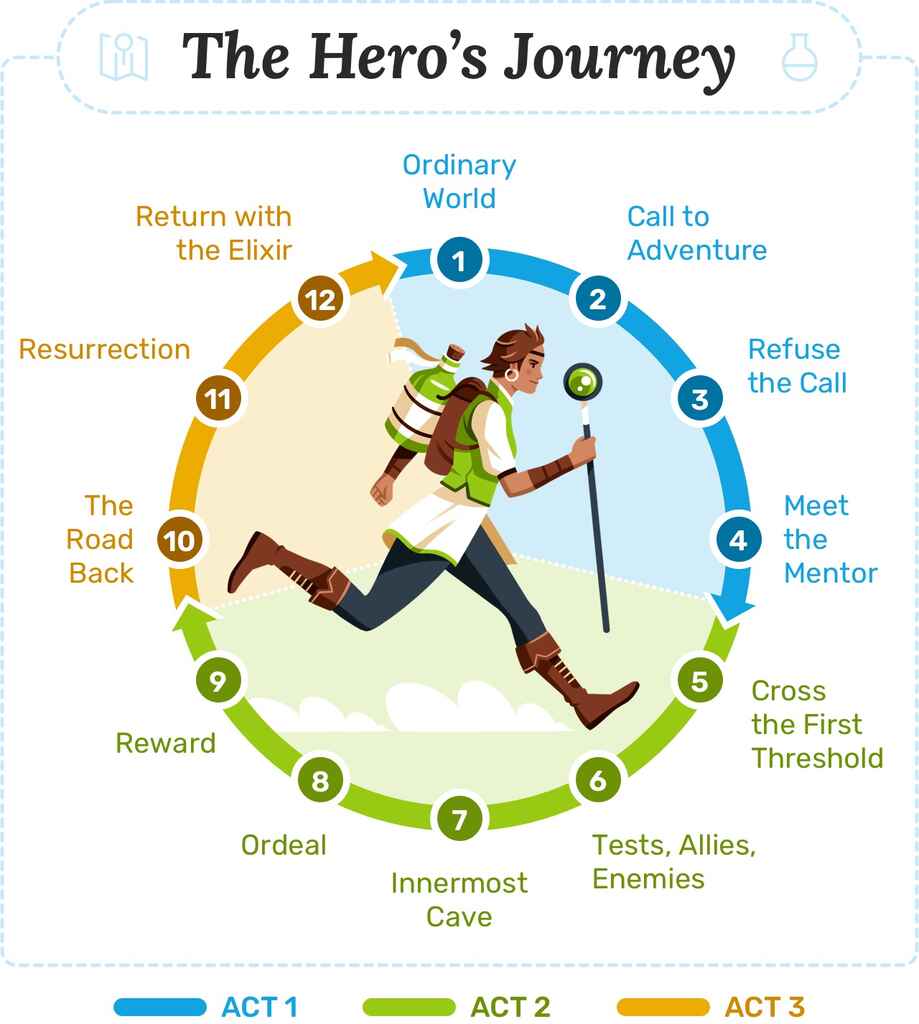Prewriting is that wonderful part of the writing process where you begin to flesh out that larval idea. Everything is new and full of promise and options and rainbows and sparkles and all good things. Alas, I can confirm from personal experience that prewriting is REALLY hard to get out of. At least, it’s hard for me – you may find it easy to stop that process and actually start writing something, but not me! My need to procrastinate outweighs all things.
So what IS prewriting, exactly?
This is all the stuff that you do before you begin writing the first draft. Prewriting comes in many different flavors (the most common of which is, arguably, outlining). Below are what I consider the 6 main types of prewriting, more or less in the order they happen (at least, for me):
- Brainstorming
- Outlining
- Finding Inspiration
- Character Development
- Setting Development
- Research
Let’s break those down, shall we?
Brainstorming
When I think of brainstorming, I immediately think of lists. I love lists. I love idea generation. I love those times when you can pour out whatever comes to mind because, at this stage, nothing is a bad idea. The lists I make usually result in something I will put into a story, but sometimes I hang onto them for later inspiration.
For example, I have a list of surnames that I just started writing down one day, just as many as I could think of, and I use it when I need a name. Sometimes, one will jump out at me, but often I just grab one at random for a placeholder. I have first names as well, but those aren’t just a list – they’re a spreadsheet with meanings. Like the baby name websites only curated because it’s only names I like.

Sometimes, when my brain is itchy and I just want to think and write something, I’ll make lists. This could be anything from “list as many colors as I can think of” or “a list of different kinds of drinks” or “words associated with feathers.” It doesn’t really matter. Sometimes, I get story ideas or plot bunnies, but sometimes, the end result is that my brain is a little quieter. That, I think a bit counterintuitively, helps me actually write.
Outlining
Do you know how many different outlines and story structures are out there? SO MANY.
Do you know how many different outlines I’ve applied to one story just to see how they align? Also SO MANY.

It doesn’t help that I absolutely love love love to arrange things, so a huge (unsponsored) shout-out to Plottr because I can add as many plot structures as I want and drag things around, and it’s very satisfying.
Can I admit to being terribly confused about applying the Hero’s Journey to non-fantasy stories? There are so many blogs and posts and such that talk about how the HJ can be applied to all genres and all types of stories, but I run face-first into a wall of “huh?” every time. I still try to make it work because not being able to make it work makes me feel inadequate somehow. (Check out the Reedsy article where the HJ graphic came from.)
Finding Inspiration
When you’re looking for things that help you apply your senses to your story concept, this is the prewriting space. Finding inspiration is hugely varied, but it might look like:
- hearing a song and thinking, “that’s definitely my MC’s favorite song” then making a playlist for every main character (and some of the supporting ones, too) as well as playlists to help you generate particular emotions or evoke specific settings.
- seeing an actor and thinking, “they’re perfect to play Mistanzo the Great, the Dire Wizard of Elvandoria” and then meticulously casting your entire story.
- catching a scent that makes you think of a certain character or setting, then hunting down the Yankee candle or Bath & Body Works lotion that would be perfect for the story.
- idly browsing Pinterest and gathering any pins that give you a flash of inspiration for your story.
- seeing someone at work and thinking their outfit would be perfect for supporting character 391 then planning out the capsule wardrobe of every character.
- reading the writing of others and noting what resonates with you (things like tropes, sentence structure, character traits, settings, anything really) and considering how you could put your own twist on it for this story.
Character Development
When you get that first kernel of a character idea, it doesn’t always snowball as quickly as you want into a fully fleshed out character study (though sometimes, it happens a little too quickly). There are tons of ways to start developing your new character, and it’s incredibly easy to get lost in the minutiae.
For example, there are tons of surveys out there to help you, like this 150 question one from Novel Factory. I think it’s a great tool, but I also think you can start writing your story before you know the intimate details of their first kiss. Well, unless that’s critical to your story. You know what I mean. Some details will be incredibly important depending on your plot and/or genre, but others… not so much.

Personality quizzes and profiles – like Myers-Briggs or Enneagram or What Potato Are You? – are great at giving you a broad look at your character without delving into details. The trouble I get into, personally, is when I start reading absolutely everything about the results. I can easily spend a couple hours reading a bunch of different interpretations of INFJ or 5: The Investigator or even that I’m a Yukon gold potato.
Making a Pinterest board is another way get into the weeds. I love love love a good Pinterest board where you can pin things that give you ideas about setting or character design or outfits or concepts or names and their meanings or other little things that resonate with your idea of a character or plot (check out this fun one from Selina Eckert for Sea of Broken Glass). Plus it’s Pinterest, so you’ll likely find things to add to your other boards while you’re browsing.
Setting Development

Have you ever seen that picture of the iceberg with the world building theme? The answer is probably yes now because I’ve included it right here. (Here’s the original reddit post.) But suffice it to say, world building can be an enormous task, especially if you’re writing a story set in an entirely different world with completely different customs and flora/fauna and probably even soil composition. One of the coolest things I read was about how you can’t have French braids without France. (Here’s a reddit copy of the post, and the post has a bonus Spiders Georg reference!)
Breaking out of this particular phase of prewriting is the absolute most difficult for me. I’ll be putting some words on a page, finally, then realize I would need to create a societal norm for the event to actually happen or for my characters to react a specific way to the event.
I feel like I have to create an entire history behind the feelings and customs, maybe even some legislation, to more fully realize the plot line. In reality, do I have to do that? Nope, not unless that particular feeling/law/custom is central to the plot or themes – and that’s not usually the case. I don’t have to know the world’s complete history to write a story set in said world, but it’s enticing and I enjoy it… and I also don’t get any writing done.
For a recent example of my setting development prewriting trap, I am writing a story set at a college. Do I need to know everyone who works at that college? No. Do I have a staff and faculty roster of every single person who works at the college, carefully designed to be inclusive, with the full array of classes available to students and who teaches what AND a map of the campus showing where everyone’s office is?
Yes.
Yes, I do.
I remain unrepentant.
Research
The incredible labyrinths that researching topics can take you through… I’d be better off if there were an Amanda-eating monster at the center of each one so it would put me out of my time loop. I want to find out what life was like in 1066 during William the Conqueror’s massive census of England? See you in three years, folks.
Writers like to joke about being on government watch lists because of their search history, and I’m no different. Just in the last week, I’ve dug into crimes and their associated punishments through history, phases of human decomposition, how to assess a house plant for its needs based on leaf patterns, how Belgium’s King Leopold decimated the Congo, and the best methods for chest binding. None of those things has any bearing on the stories I’m working on, but I found myself on those pages via research for things that actually did have relevance.
Sometimes, research doesn’t start as research, really, just a quick jaunt online to see what synonyms I could use for brown as an eye color… and suddenly I’m two hours into saccades. Do I need to know the entire history of the Wellerman shanty? No. But I do. I do, and I’m not even writing anything set on a ship. I don’t even know how I got there in the first place.
How do I stop prewriting and start writing?
Hell if I know. This is something I struggle with constantly. I have some quick fixes, but I come back to the prewriting process pretty much every time I sit down to write.
I’m open to your suggestions!
Graphics not linked in the text:
Notebook graphic by Fiona Murray-deGraaff on Unsplash
Lego graphic by Markus Spiske on Unsplash

This is an awesome post, Amanda. Love the list of surnames idea. Thanks for the Plottr shoutout, too!
Thanks Jordan! I am tickled that you found my little blog – always happy to support/shout out things that are awesome and helpful.